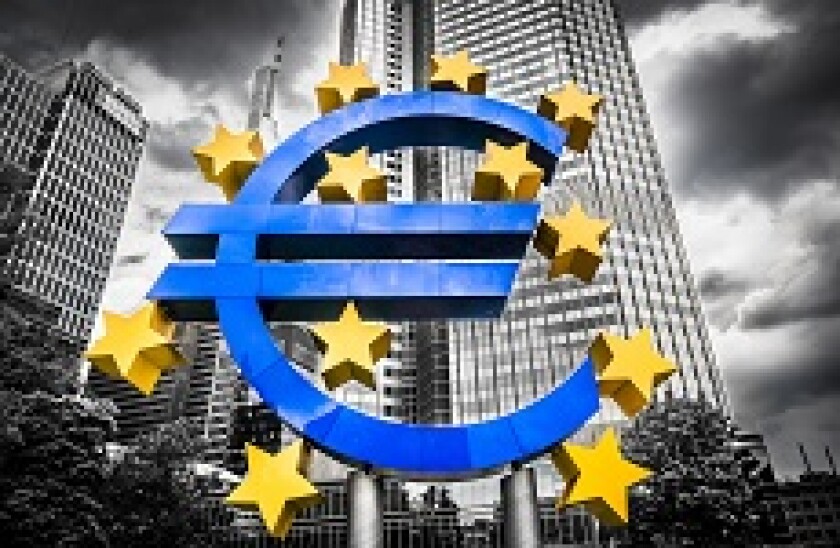Barring some disaster, far-right candidate Marine Le Pen shouldn’t bother calling the removal services to take her furniture to the Élysée Palace. But despite eurozone spreads tightening on the news, another move — albeit far less dangerous for the future of the currency bloc — will soon start exerting its influence.
The ECB’s hand was likely hovering nervously over the ‘buy’ button on its public sector purchase programme as far-left — and, like Le Pen, Eurosceptic — candidate Jean-Luc Mélenchon enjoyed a late surge in the polls. Had the second round been made up of two figures from the extremes of the political spectrum, only an ECB buying spree would have stopped eurozone government bond yields spiralling out of control.
Now that threat is over — and Macron topped the first vote, despite Le Pen being ahead for much of the campaign — the ECB is almost certain to start thinking more about how it moves out of the period of negative interest rates and extraordinary monetary policy. After all, it has already cut the amount of bonds it buys per month.
This won’t happen immediately, of course — expect very little news at this week’s Governing Council meeting — but it is clear that the ECB’s days of loosening are over and it is going to follow the US on a tightening path.
European politics was the bogeyman for many market participants this year. But with the far-right failing to do as well as many analysts had predicted in Dutch elections earlier this year, a centrist looking very likely to win the French presidency and support for the far-right Alternative für Deutschland falling ahead of German federal elections in September, those fears have been put to bed for now.
There are still worries over Italy, but as it stands the next general election does not have to be held before May 23, 2018. That is well after the end-2017 date that the ECB has committed to buy bonds until.
After Macron’s victory, eurozone money markets started pricing in a higher chance of a deposit rate hike by the ECB in the first half of next year.
While there is still a long way to go before then, barring any further shocks it is clear that we’re moving away from negative interest rates in the medium term.
For any issuers wanting to enjoy another chance to charge investors for lending them money, time is running out.

